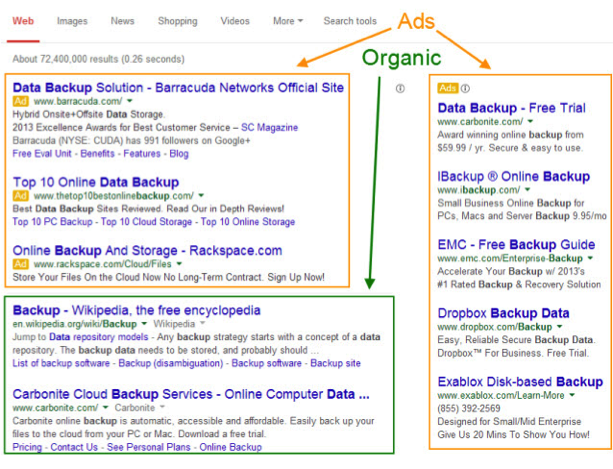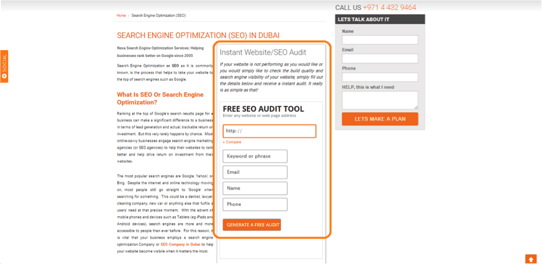Updated for 2021
So you have your new website. It looks awesome, it translates your brand throughout and offers great user experience. But there’s still not the traffic you expected and desired to allow your brand to reach larger scales that the World Wide Web offers. You have started searching around for information on how to promote your website and you’ve heard the acronyms, SEO, SEM, PPC flying around. But what the heck are they?
The simple answer to this is:
- Search Engine Optimization
- Search Engine Marketing
- Pay Per Click
What does this mean and how does it affect how your website is seen?
When users need to find information about something be it a new laptop, holiday, a plumber to fix the leaking sink… it doesn’t matter what they are looking for but where they are looking. The number one place all users go to find this information is a Search Engine. For example Google, Yahoo, Bing etc. There is no hiding from this unless you have networked in the traditional form of face to face with a potential customer and gave them your website address. But with this approach, you won’t get the high volumes of traffic to your site nor visits from anyone outside of your network.
How you get seen on these search engine is where the acronyms SEO, SEM & PPC come into play. There are two forms of advertising on search engine: Organic (Unpaid) search results or Paid advertisements:
- SEO (Search Engine Optimization) is the method used to increase your websites ranking within the Organic search results.
- SEM (Search Engine Marketing) & PPC (Paid Per Click) are references to the Paid advertisements.

Now we understand what these terms refer to, we need to understand how to implement them. Let’s start with SEO.
There is no easy way to implement SEO and get your website from nowhere to NUMBER 1 on PAGE 1 of a user’s searches. Instead it is a combination of multiple elements:
- Content
The first place to begin implement SEO and creating a successful website is in the content on your website. When search engine ‘Crawlers’ or ‘Robots’ read your website they calculate the usage of keywords throughout your content. Don’t make the mistake of over using keyword throughout your content just so these crawlers give you a high keyword count. Any text copy that seems unnatural or of low quality may be flagged as "spammy" by the search engines! Remember, ultimately it is the users who come to read your website that you want to keep interested so your content must be understandable and engaging for them.
When writing the content for your website trying to keep these question in mind. Is the content relative to the service/product you provide? Is it easy for users to navigate throughout the website? A good idea to test this can be to have a friend/family member or work colleague take a look at your website and ask them questions about your website. Ask them things such as "Do you know what the services/products I provide?" or "Can you find what you are looking for?".
- Domain names & URL’s
Domain name and URL's are terms regularly used to describe the same thing, your website address. For example: www.digitalnexa.com. A URL is specific to each page of your website. E.g. www.digitalnexa.com/portfolio or www.digitalnexa.com/portfolio/hilton.
Your Domain name should be short, easy to remember and describe your brand/business well. Try to avoid using dashes(-) and double letters if the domain you wanted is not available and remember your domain doesn’t have to be the name of your business. As long as your domain is marketed and optimized correctly, your users will find you. For Example, B&Q’s (British hardware store) domain is NOT: www.bandq.com as the psychology of this is users can’t pick up on the work ‘and’ between the b & q. Instead they use www.DIY.com as it describes their products and is meaningful for their users. Likewise the URL’s specific to each page should to relative to the content on each page.
- Metadata
This is where things get a little tricky. Metadata is another piece of ‘internet jargon’ and is a term that is used to group all your website’s coding ‘tags’. These tags describe elements of your website to search engines crawlers. For example, tags such as ALT, HEADER, TITLE, META.
This step of improving your SEO comes down to good coding practice from your website developer. In an ideal world, when you have your website created the code should be optimized so that all of this Metadata is included and relates back to the content on the page and ultimately your identified keywords to your users searches.
We know that not everyone lives in an ideal world so your website may not have been optimized when it was created. Which leads us on to the next step…..
- SEO Tools
There are lots of tools out there to help you find out where things might have gone wrong in the creation of your website. SEO tools can give a full audit of your website’s coding. and provide you with a full description of what is missing from your website to help increase your search engine ranking and the steps you need to take to correct them.
You can get your own website audit done very easily and free at http://www.digitalnexa.com/Search-Engine-Optimization-Dubai. Simply follow the link and enter your website domain into the form you have your own downloadable website audit.

5. Back linking
The final element of SEO is the connection of external links to your website. It is very important to choose your SEO Agency in Dubai correctly because there are many agencies that preform the task of back linking your website incorrectly.
What they will do is research high volume of traffic website and create back links from these website. Sounds great, right? Wrong! Search Engines understand when this is being done and penalise websites that engage in this activity. Some agencies will continue to the point where the search engine will ‘Black List’ your website giving your site no visibility without realising the damage that's being caused. Our approach to creating backlinks is via the creation of high quality content that others find interesting and share with their friends, family and colleagues. This approach is also the recommended approach by Google.
For advice on selecting the correct agency for your business check out our blog article here: http://blog.digitalnexa.com/the-top-web-design-company-in-dubai-5-signals-to-look-out-for-when-looking-for-the-best-fit-for-your-business
.Learn more about Search Engine Optimisation and our "Search Engine Ownership" take on it for 2021, here.
SEM & PPC
Now for SEM & PPC. Thankfully, this process is a little bit simpler to implement than SEO. When it comes to paid advertising, you simply follow these steps:
- Select your Desire Keywords
When selecting your keywords you are trying to select the word or phrases the users who you want to find your site will use. For Example, if your business is plumbing a user might search key phrases such as, ‘how much will a plumber cost’, ‘how do I fix a leaking pipe’, ‘best plumber in Dubai’ or something as simple as ‘plumbers’.
- Research the keywords for the best results
Now you have made a list of all the keywords you think your users will be searching, you might be thinking your list of keywords is never ending. This is where your digital marketing agency will do their research. The key to a successful PPC campaign is finding the best keywords to maximise your success and reach the highest volume of users to get ROI (Return on your investment) at the least amount of cost.
To go back to our example, if you are trying to promote your plumbing business, if you select ‘plumbers’ as a keyword you want to advertise on you will find that demand to advertise for this keyword is very high, resulting in the cost ‘Per Click’ to be very high.
So during the research stage, you are trying to find keyword words or phrases that your competitors are not targeting but the customer base are still searching for, which will allow you to get better coverage for your advertising.
- Set your budget
The final stage is setting your budget. When setting your budget, your digital marketing agency will give you the information to help achieve your goals. For example, if your goal is to increase your website traffic by 10,000 users per month. Your agency can tell you that every time your advertising is click on, taking users to your website will cost you AED 0.50 per click. Then you can calculate in order to reach 10,000 additional users you will need a budget of AED 5,000.
If you need any more information on SEO, PPC or SEM, please feel free to contact me by completing the form or download our free e-book:
%20(1).png?width=2701&height=607&name=BRC_NEXA_LOGO_WHITE%20(2)%20(1).png)

